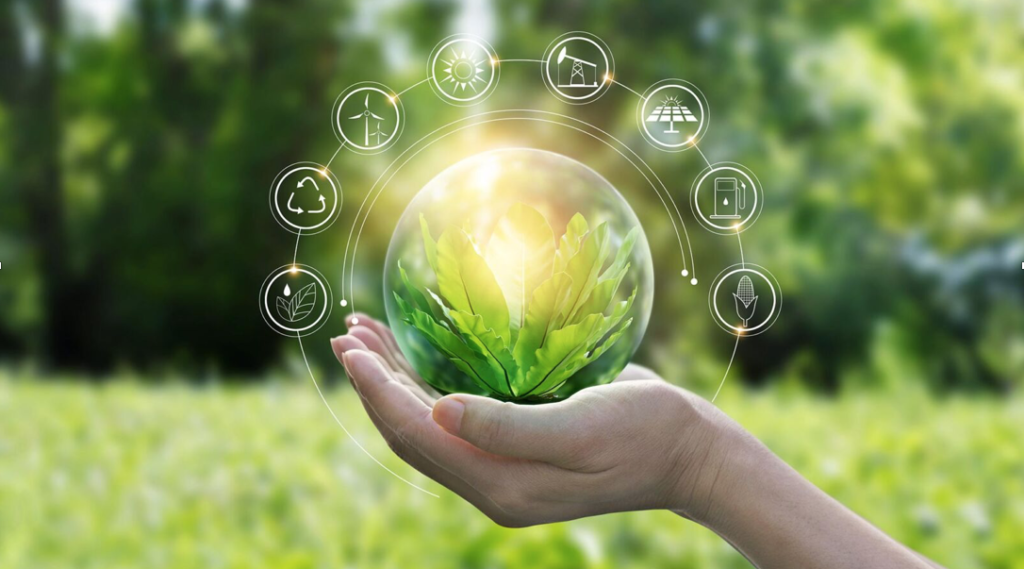«The vitality of the Earth and the future of the human species will only be guaranteed if we manage to endow them with sustainability. Otherwise, the future may be very dark» (Boff, L. (2013). Sustainability. What it is and what it is not).
«We are not God. The earth precedes us and has been given to us», affirms Pope Francis in his ecological magna carta, Laudato Si, to respond to the accusation that in our Judeo-Christian tradition, the Genesis account that invites us to «dominate» the earth (cf. Gen 1:28), favors the savage exploitation of nature, and presents an image of the dominant and destructive human being. The Pope makes it clear that this is not a correct interpretation of the Bible. Today we must read the biblical texts in their context, with an adequate hermeneutic, and remember that they invite us to «till and tend» the garden of the world (cf. Gen 2:15).
Bearing in mind that «to till» means to cultivate, to plow or to work, and «to care for» means to protect, guard, preserve, guard, watch over, this implies a relationship of responsible reciprocity between human beings and nature, in the context of the intimate relationship between the poor and the fragility of the planet, as the Pope concludes in the same Encyclical. This generates conditions for self-sustainability or, in a more far-reaching term, sustainability, defined in 1987 by the United Nations as «meeting the needs of the present without compromising the ability of future generations to meet their own needs». Thus, an ecological discourse goes hand in hand with a social discourse and we cannot think of sustainability without considering the poorest, who are the ones who suffer most from the consequences of environmental mismanagement.
This is our commitment to creation: to inhabit it as an Oikos, called «Common Home» by the Pope, and to enter into otherness with it, in the sense that being «other», we establish relationships of care and reciprocity. She nourishes and sustains us and, in turn, we care for her and allow her to be reestablished, in such a way as to guarantee her stability. Likewise, as a work of creation, humanity must be looked upon for its dignity and the common good, in pursuit of sustainable development.
In the so-called Agenda 2030, the United Nations, in 2015, established 17 goals to achieve sustainable development (SDGs) on the planet, covering three fundamental dimensions, social, economic and environmental. The goals prioritize the fight against poverty and hunger, the defense of human rights, inclusive and equitable education, gender equality and women’s empowerment, the shift towards responsible consumption patterns and planet-friendly economic growth. They were proposed with a holistic and systemic vision, since everything in the world is connected, to be applied in local, regional, national and global scenarios, including the commitment of governments, the private sector and civil society, in each particular context.
As a Congregation that is committed to dignifying human life in an environment that must be cared for, we have been an expression of some of the SDGs and today, in a special way, we have the challenge of assuming them with greater evangelical and missionary commitment. Our effort has been concretized in six (6) of the 17 SDGs:
Objective 1: To put an end to poverty in all its forms throughout the world. The preferential option for the poor, which is expressed through the presence of our Congregation among the excluded and most vulnerable people in society.
Goal 2: End hunger. We have contributed to achieve food security and improve nutrition in vulnerable populations, such as minors, adolescent girls, students and the elderly.
Objective 3: Guarantee a healthy life and promote well-being for all at all ages. The promotion of health, disease prevention and care for wellness and health, have been one of the pillars in the evangelizing mission.
Goal 4: Ensure inclusive, equitable and quality education and promote lifelong learning opportunities for all. Education for life, the key to escape poverty, has been at the heart of our evangelical proposal.
Goal 5: Achieve gender equality and empower all women and girls. In order to reduce discrimination and violence against women, we work in the areas of Protection, Health, Education and Social Promotion.
Objective 12: Ensure sustainable consumption and production patterns. Our approach is to permanently educate on responsible consumption and lifestyles that do not conflict with environmental care and that also optimize the use of resources.
The other objectives summon us as part of creation, for sustainability in all its dimensions, counting on the solidarity of the world. Let us do our part with the awareness of a common origin, of a mutual belonging and of a future shared by all, as the Pope reiterates in Laudato si (202), being daughters of Francis of Assisi, patron of ecology and of Luis Amigó, the man of integral ecology for his harmonized and integral life, to strive in actions that give self-sustainability to nature and to human life.
Sr. Sor Alicia Vásquez, Tc and Gabby Vásquez




